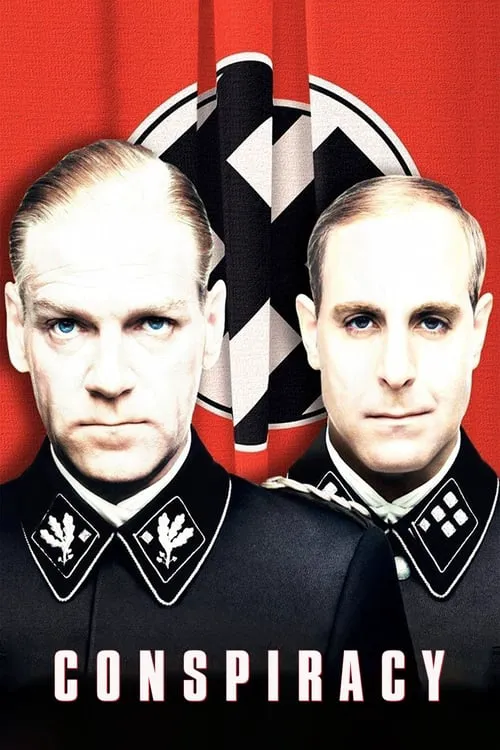Conspiracy

Plot
In the thought-provoking drama "Conspiracy," the stage is set in 1942, during the height of World War II. The setting is the elegant and exclusive Wannsee Conference Villa in Berlin, the venue chosen by Reinhard Heydrich, a high-ranking SS officer, to host a secret meeting of the nation's top Nazi officials. On the agenda is the implementation of the "Final Solution to the Jewish Question," a codename for the systematic extermination of six million Jews across Europe. The film opens with a series of ominous shots of Nazi officers arriving at the villa, each one exuding an air of superiority and ruthlessness. As they gather, it becomes apparent that this is more than just a routine policy meeting – it's a carefully orchestrated event designed to bring together the various factions within the Nazi regime to unite behind a singular goal: the complete eradication of Jewish life in Europe. At the center of the gathering is Martin Luther, a relatively low-ranking SS officer who finds himself caught in a web of intrigue and politics. Luther's primary role is to facilitate the discussion and ensure a smooth transition from concept to action. However, as the meeting progresses, it becomes clear that Luther is increasingly uneasy with the brutal nature of the plans unfolding before his eyes. Meanwhile, a cast of characters emerges, each with their own backstory and motivations. There's Adolf Eichmann, the ruthless and ambitious Nazi officer responsible for implementing the "Final Solution"; Friedrich Kritzinger, a bureaucrat tasked with overseeing the logistical aspects of the extermination program; and Wilhelm Stuckart, a lawyer and expert in German law who is instrumental in drafting the framework for the Final Solution. Throughout the film, these characters engage in a series of debates, power struggles, and ideological discussions that provide a glimpse into the dark and twisted world of Nazi politics. As the meeting drags on, it becomes increasingly apparent that the Nazi officials are not just debating policy – they're fighting for position, influence, and power within the regime. One of the standout aspects of "Conspiracy" is its casting, with a talent-rich ensemble featuring Kenneth Branagh, Stanley Tucci, David Hayman, and Colin Firth, among others. Each actor brings depth and nuance to their respective characters, imbuing the film with a sense of realism and gravitas. The direction by Frank Pierson is also noteworthy, with a keen eye for period detail and a sense of claustrophobia that perfectly captures the intense and suffocating atmosphere of the Wannsee Conference. Pierson's camera work is unobtrusive yet effective, allowing the audience to become fully immersed in the world of the film. As the meeting draws to a close, it becomes clear that the outcome is all but sealed. The Nazi officials leave the conference villa, convinced that they have made a pact to ensure the extermination of Jewish life in Europe. However, the film also implies that some may have had fleeting moments of doubt or trepidation, questioning the morality of their actions and the consequences of their decisions. In the end, "Conspiracy" is a thought-provoking and unflinching examination of the darkest aspects of human nature. By focusing on the bureaucratic and administrative aspects of the Holocaust, the film sheds new light on the mechanisms and machinations that allowed the Nazi regime to perpetrate such atrocities. It's a sobering reminder of the dangers of ideological extremism, the corrupting influence of power, and the devastating consequences of unchecked human cruelty.
Reviews
Recommendations




